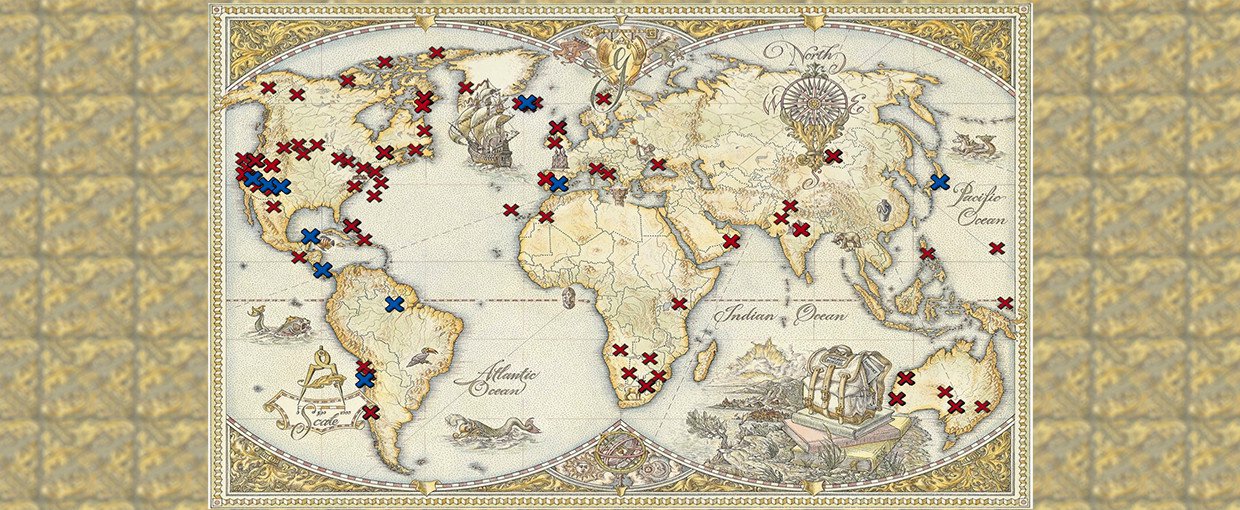
Feb. 12, 2020
Program News
Lewis & Clark Fund for Exploration and Field Research in Astrobiology

Map of some locations explored by past Lewis and Clark Fund recipients.Image credit: NAI.
The Lewis and Clark Fund for Exploration and Field Research in Astrobiology is open to field studies in any area of interest to astrobiology. Applications will be reviewed by a committee that includes members of the NASA Astrobiology Program, the American Philosophical Society, and the wider science community as needed. Recipients will be designated as Lewis and Clark Field Scholars in Astrobiology.
Deadline: February 17, 2020
Notification: May 2020, for work in June and beyond
Ph.D. candidates wishing to pursue projects in disciplines with a large dependence on field studies, such as archeology, anthropology, biology, ecology, geography, geology, linguistics, paleontology, population genetics, and other fields, should consult the program description and forms for the Lewis and Clark Fund for Exploration and Field Research.
Astrobiology is the study of the origin, evolution, distribution, and future of life on Earth and in the universe. It encompasses research in, among others, the fields of astronomy, chemistry, evolutionary biology, field and population biology, geology, microbiology, molecular biology, oceanography, paleontology, and planetary science. Astrobiology includes investigations of the geologic and fossil record to understand the conditions of the early Earth when life arose. Its scope also includes research of contemporary locations on Earth that might be similar to early earth and to environments elsewhere in our Solar System (such as on Mars, Europa, and Titan), which may be, or have been in the past, suitable for life. Astrobiology is also about understanding the characteristics of life, which requires investigations into extreme natural environments on Earth and, eventually, elsewhere.
Additional information about the NASA Astrobiology Program, its programs, and the scope of its research can be found at the NASA Astrobiology website.